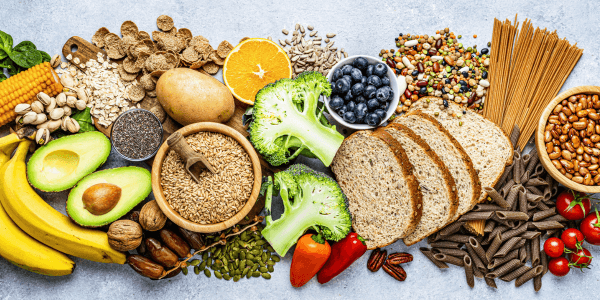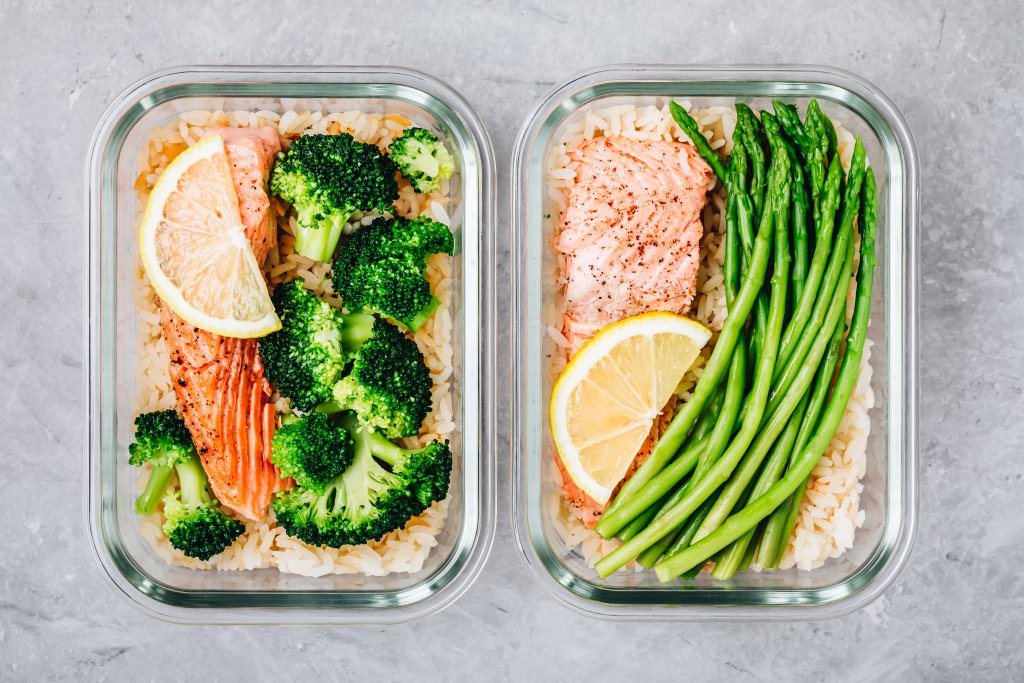Health Hub
How to improve your digestive health: 8 powerful tips
Checked for accuracy by Ms Lucy Kerrison

Gut health is an essential part of our overall health – linked to everything from digestion and our immune system to mental health. But there’s more to good gut health than just eating more fibre.
We spoke to Lucy Kerrison, a gastrointestinal and gut health specialist to help us understand the key factors in good gut health, and, importantly, what we can do to ensure good gut health.
Don’t forget that you can talk to us to help with any aspect of digestive health. Explore our digestive health services here.
What are the key factors affecting digestive health?
The key pillars we talk about in gut health are:
- Diet and nutrition
- Exercise and physical activity
- Stress and mental health
- Sleep patterns.
Diet and nutrition
The gut microbiome, a complex community of microorganisms living in our digestive system, plays a crucial role in our health, so, what we put into our bodies – diet and nutrition – are key factors in maintaining a healthy gut microbiome.
A balanced diet rich in fruits, vegetables, whole grains, lean proteins and healthy fats provides the nutrients necessary for maintaining the integrity of the gut lining and supporting the immune system. A diet like that will ensure an adequate intake of vitamins, minerals and antioxidants, which help protect the gut cells from damage and support overall gut health.
Different aspects of diet can affect your gut health in different ways – and if you have certain underlying conditions that will also be a variable. The main aim is to eat foods that help the gut move food along well – for example, different types of fibre.
- The human diet contains a wide range of fibres, each serving different functions. This diversity is crucial because different types of fibre have unique benefits for the gut. A varied fibre intake supports a diverse microbiome, which is associated with better health outcomes.
- Soluble fibres, found in oats, nuts, seeds, and some fruits and vegetables, dissolve in water to form a gel-like substance. This type of fibre helps feed the beneficial bacteria in the gut, promoting their growth and activity. These bacteria, in turn, produce short-chain fatty acids (SCFAs) like butyrate, which serve as energy sources for colon cells and have anti-inflammatory properties.
- Insoluble fibres, present in whole grains, nuts, seeds, and the skins of many fruits and vegetables, do not dissolve in water. They add bulk to the stool and help food pass more quickly through the stomach and intestines, aiding in regular bowel movements and preventing constipation. This process also helps in the elimination of toxins from the body.
- Certain fibres can help strengthen the muscle walls of the gastrointestinal tract. Regular bowel movements, stimulated by a fibre-rich diet, keep the muscles of the gut wall strong and functional.
- Prebiotics are a specific type of fibre that the human body cannot digest. They serve as food for beneficial gut bacteria, essentially helping to fertilise them. Foods rich in prebiotic fibres include garlic, onions, leeks, asparagus, and bananas. By promoting the growth of healthy bacteria, prebiotics help improve the overall health of the gut microbiome.
Your aim should be to get enough total fibre plus different fibre types.
READ: The Link Between Gut Bacteria And Obesity

Exercise and physical activity
Getting moving is super important for keeping your gut in good shape. When you’re active you’re also giving your gut’s good bacteria a boost. This means better digestion. Working out keeps things moving smoothly through your digestive system, so you’re less likely to get backed up.
Stress and mental health
The gut and the brain are in constant communication through the gut-brain axis, making mental health and stress management essential for gut health. Chronic stress can negatively impact the gut microbiome, leading to a decrease in microbial diversity and an increase in harmful bacteria. This imbalance can contribute to gastrointestinal issues such as irritable bowel syndrome (IBS), inflammation, and other digestive problems. Implementing stress-reduction techniques such as mindfulness, meditation, deep-breathing exercises, or engaging in hobbies can help maintain a healthy gut-brain connection. Managing stress effectively not only supports a healthier gut microbiome but also enhances overall well-being and quality of life.
READ: IBS – what it is and what you can do about it
Sleep patterns
Sleep is like a secret superpower for your gut. A lack of quality sleep can lead to an imbalance in gut bacteria, potentially increasing the risk of things like obesity, insulin resistance and gastrointestinal disorders. A good amount of good quality sleep helps you maintain a healthy and diverse microbiome, which in turn can influence sleep quality, creating a beneficial cycle.

Practical tips for improving digestive health
First of all, it’s really important to say that everyone is different. For example, do you have any kind of clear digestive conditions and/or symptoms? Things like bloating or constipation. It’s really important to get a diagnosis to understand the best advice.
1. Enough fibre, varied fibre
As we’ve discussed, it’s essential to get enough fibre – and to get enough fibre diversity. Studies show that the higher your fibre level the better it is – you’re really feeding your gut bacteria. Look to eat 30 different plant-based products a week. That may sound like a lot but it’s easier to do than you might think.
That’s fibre which is within natural plant-based products which is not absorbed – not digested – and reaches your lower gut which can benefit the microbiome. This can also help cardiovascular health.
Also look beyond fruits and veggies. Think of whole grains, legumes, nuts and seeds as well.
You could have packets of mixed nuts and seeds in the kitchen ready to sprinkle on a meal or snack on. Think about expanding the range when you’re shopping. Buy green apples one week, red apples the next. It’s easier than you think, and it gets easier as you start to put it into practice.
2. Stay hydrated
Water is essential. It will help to bulk and soften your stool as well as keep it moving. If you’re not getting a lot of fibre but not enough water, you can actually become more constipated – which can cause abdominal pain and a whole range of other issues.

3. Reduce stress
We all have some daily stresses. It’s impossible to completely remove, but we must try and find a healthy balance. There’s a whole range of different stresses from family to work, so try to bring in ‘anti-stresses’: things that we can do to reduce stress. That might be meditation or mindfulness or yoga. Find what works for you.
READ: How To Deal With Stress
4. Moderate red meat
Red meat, while rich in protein and essential nutrients like iron, zinc, and B vitamins, can also be a bit tough on your gut if you’re having it too often. Try to limit your red meat consumption to a few times a week rather than making it a daily feature on your plate.
When you do opt for red meat, choose lean cuts and try to limit processed meats like sausages and bacon, which can contain additives that aren’t great for your gut. Also, pair your red meat with plenty of vegetables.
5. Eat fermented foods
Fermented foods can be great for your gut health – but the term covers a number of different things. Lots of different foods come under this category.
- Yoghurt is probably the first thing that pops into your head when you think of fermented foods. Some yoghurts are packed with probiotics, primarily Lactobacillus and Bifidobacteria, yoghurt helps increase the good bacteria in your gut. However not all yoghurts contain probiotics, as they are lost in the processing. Look out for yoghurts labelled as ‘live’ or ‘probiotic’ as these tend to have bacteria added – you may also often see the strains listed on the label.
- Kefir is a tangy, fermented milk drink, like yoghurt but with a kick. It’s fermented with kefir grains, which introduce a wider array of bacteria and yeasts to your gut compared to yoghurt.
- Sauerkraut and kimchi are simple yet powerful gut health boosters. Kimchi is not only a source of probiotics due to its fermentation process but also contains a bounty of antioxidants from its rich vegetable and spice content.
- Kombucha is a fermented tea – a probiotic-rich drink that can help populate your gut with beneficial bacteria.
- Vinegar. Vinegar can be good for gut health. While not fermented with the goal of being a probiotic powerhouse like yoghurt or kefir, vinegar undergoes a fermentation process that can contribute to its health benefits, including potential positive effects on your gut. While vinegar is a fermented food and has some health benefits, it doesn’t contain live bacteria as it is sterile. Also, be careful because vinegar can damage your teeth and also be quite harsh on your gut so consider diluting it if you’re drinking it.
6. Practise mindful eating
Mindful eating is all about paying full attention to the experience of eating and enjoying our food. When we eat mindfully, we listen to our body’s hunger cues and signals of fullness, which can prevent overeating and improve our digestion. If you’re not chewing and turning your food into a paste in your mouth, you’re missing the enzymes that are released in your saliva. By eating slowly and chewing thoroughly, you’re giving your digestive system the time it needs to break down food efficiently, which can help prevent digestive discomfort like bloating and indigestion.
7. Exercise portion control
Eating portions that are too large can overwhelm your digestive system, leading to indigestion, bloating, and other discomforts. Portion control ensures that your gut isn’t overburdened, promoting smoother digestion. Eating appropriate portions also helps maintain a balanced diet, which is crucial for nurturing a diverse gut microbiome. Overeating, particularly of processed and sugary foods, can lead to increased inflammation in the body, including the gut.

8. Moderate ultra-processed foods
Everyone’s talking about ultra-processed foods at the moment (foods that include one or more of a range of ingredients such as xanthan gum, emulsifiers and preservatives).
In moderation, ultra-processed foods don’t need to be damaging. Eating large amounts of UPF – oven pizzas, readymeals, sweet/savoury snacks – can be bad for your gut health and health generally, but you don’t need to eat exclusively fresh and homemade foods. It’s important to be sensible. Try to reduce it where possible, but you don’t need to read every label on everything in your cupboard and remove it from your diet completely.
Importantly, certain UPFs may impact some people with certain conditions more than others, for example, people with inflammatory bowel disease (IBD).
READ: Understanding IBD and how you can manage it – including ‘What is the difference between IBD and IBS?’
What are some of the most challenging aspects of implementing good habits?
We’re all different, so we will all have different challenges, whether that’s around diet or stress. Some people don’t like certain foods, some people have certain sensitivities and allergies. The challenge is to explore what works for us, and then define how we can do that – what foods, what habits; how can we get varied fibre and de-stress.
For example, I have a lot of busy London clients. Adapting their diet can be difficult because they’re often eating on the go, in between meetings and grabbing things quickly.
When to seek medical advice
Knowing when to seek medical advice is essential for addressing any underlying issues and preventing more serious conditions. Certain symptoms should prompt you to talk to a healthcare professional, so they can diagnose any underlying health issues that need medical intervention, for example:
- Persistent pain or discomfort
- Sudden changes in bowel movements, such as persistent diarrhoea, constipation, or changes in the colour and consistency of your stool, can be signs of a problem
- Unexplained weight loss
- Blood in stool
- Excessive gas or bloating
- Fatigue.
READ: Gluten intolerance, allergy or something else? Diagnosing coeliac disease
Regular check-ups with your healthcare provider, even when you’re feeling healthy, play a vital role in maintaining gut health and overall well-being.
More information
- Explore our digestive health services here.
- Booking an appointment with Lucy
Article Sections
Latest Hospital News
Should you wish to speak to our press team, please visit Press Enquiries





